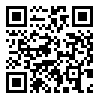مجله رویش روانشناسی از دادن گواهیهای کاغذی معذور است. لطفا تقاضا نکنید. همه گواهی ها در صفحه شخصی کاربران موجود است.
year 12, Issue 2 (spring 2023 2023)
Rooyesh 2023, 12(2): 207-218 |
Back to browse issues page
Download citation:
BibTeX | RIS | EndNote | Medlars | ProCite | Reference Manager | RefWorks
Send citation to:



BibTeX | RIS | EndNote | Medlars | ProCite | Reference Manager | RefWorks
Send citation to:
Rahimi F, Asadnia S, Mufassery M R. (2023). Structural relationships of brain-behavioral systems (BIS/BAS) with social anxiety disorder: the mediating role of disgust sensitivity. Rooyesh. 12(2), 207-218.
URL: http://frooyesh.ir/article-1-4137-en.html
URL: http://frooyesh.ir/article-1-4137-en.html
1- Master's degree, Department of Psychology, Urmia branch, Islamic Azad University, Urmia, Iran.
2- PhD in Psychology, Faculty of Education and Psychology, University of Tabriz, Tabriz, Iran.
3- PhD in Psychology, Faculty of Literature and Human Sciences, Urmia University, Urmia, Iran. ,m.r.mufassery@gmail.com
2- PhD in Psychology, Faculty of Education and Psychology, University of Tabriz, Tabriz, Iran.
3- PhD in Psychology, Faculty of Literature and Human Sciences, Urmia University, Urmia, Iran. ,
Abstract: (2041 Views)
The aim of the study was to investigate the relationship between Brain/Behavioral Systems and symptoms of Social Anxiety Disorder, considering the mediating role of Disgust Sensitivity. The method of this research was descriptive, correlational, and structural equation type. The intended population was clinical, which included all treatment seekers with Social Anxiety Disorder (male and female) of Urmia City. For this purpose, 260 people seeking treatment were selected by purposive sampling method (diagnosed by psychologists or psychiatrists) and completed the Disgust Sensitivity Scale (DSS, Heidt 1994) and the Social Phobia Inventory (SPI, Kanor et al. 2000) and Behavioral Inhibition/Activation Systems Scale (BIS/BAS, Carver, and White, 1994). The data were analyzed using the statistical method of structural equation modeling. The results showed that the direct effect of the behavioral activation system and behavioral inhibition system on social anxiety disorder is significant (p<0.01). Also, the results showed that the indirect effect of the behavioral activation system and behavioral inhibition system on social anxiety disorder with the mediation of disgust sensitivity was significant (p<0.01). Finally, the results showed that the research model had a good fit From the above findings, it can be concluded that disgust sensitivity plays a mediating role between brain/behavioral systems and social anxiety disorder. Therefore, it is necessary to pay attention to these factors in therapeutic interventions for people with social anxiety disorder.
Type of Article: Research |
Subject:
Clinical Psychology
Received: 2022/09/3 | Accepted: 2023/03/11 | ePublished: 2023/04/30
Received: 2022/09/3 | Accepted: 2023/03/11 | ePublished: 2023/04/30
Send email to the article author
| Rights and permissions | |
 |
This work is licensed under a Creative Commons Attribution-NonCommercial 4.0 International License. |







